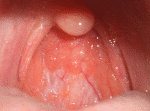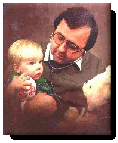**** Article is not quite finished yet ****
This is the second in a series of articles on how to obtain care for sore throats and tonsil infections. It originally started as an Email question; but, the answer became so all encompasing and of such universal interest that it begged to become an article. The question, from a reader in the Phillipines hit on many of the aspects of not only Tonsillitis, but how to obtain medical care, as well.
QUESTION: I have a 3 year old son that often gets tonsillitis (I believe), but his pediatrician always tells me this is an indication of typhoid fever…which I doubt…If it is typhoid fever, I believe she should ask my son be confined, right? What I believe he is having is tonsillitis…what concerns me is that he often gets it every 2 or 3 months and I’m worried with a lot of antibiotic he is taking…not just Amoxil, but much stronger like Cefixime, Klaricid, etc…How can I prevent him from having tonsillitis?... I am from the Philippines. What I mean for pediatrician is a licensed doctor for the young/kids. There isn’t any laboratory tests my doctor do to my son…she just looked at his throat and have him lie down, press a little his stomach. I am wondering whether her diagnosis of always typhoid fever is correct for my son. If the water we are drinking or using in taking a bath is not clean, I assume that there will be an epidemic of typhoid in our area. She advised me to boil the water my son is drinking and I did…but still he still encounters symptoms of typhoid per my doctor…which I think is only tonsillitis…My question is that is there a way that we can prevent tonsillitis? I am very concerned that he is always taking antibiotics and if you look at the dosage since my son is a little bit big it is much higher than the ordinary 3 year old kids? Can chocolates really cause tonsillitis?... Laennec J-A
The questions I "hear" in his letter are: 1) "Have I selected the right doctor"? 2) "Is my doctor giving me correct advice"? 3) "Which of us is correct - is it Tonsillitis or Typhoid"? 4) "What is the difference between: Sore Throat, Tonsillitis and Typhoid"? 5) "Will having 'tonsillitis' every 2 or 3 months hurt my child"? 6) "Is my child taking too much antibiotics and will they hurt him"? 7) "Can sore throats be prevented"? and, 8) "Does chocolate cause sore throats"! We have already dispensed with numbers 1 and 8 in the previous article, and are ready now to tackle number two.
2) Is my doctor giving me the correct advice? NO... I have to say that your doctor continually telling you that your son has Typhoid (and yet doing no difinitive tests or public health control) leaves me very perplexed, and quite concerned.
It would be very unusual for a trained physician to NOT know that typhoid (and para-typhoid) fever is a highly contagious form of Salmonella "food poisioning" which can have deadly results, especially in children.
It is strictly related to human hygene and sanitary conditions and is transmitted on food, hands and liquids. It is rare in industrialized nations which have proper sewage treatment facilities and there are not only cultures and other tests to make the diagnosis but vaccinations available as well.
Symptoms can occur from 3 days to 3 months after expusure but usually in one to three weeks. Children may become ill quite rapidly but more often the onset is gradual with a fairly high and fairly constant fever (103 - 104 F; 39 - 40 C) as the major problem.
Young children may verbalize vague complaints, including sore throat; but, clearly, the problems in the first (of 4) stages are: Headache, Weakness and fatigue, Abdominal pain and either Diarrhea or constipation.
In the second week a temporary rash of small, flat, rose-colored spots on the lower chest or upper abdomen occurs; and, without treatment, phase two begins producing continued fever and either pea soup diarrhea or severe constipation.
In the third week, still without treatment, severe lethargy, coma and death may occur; but, occasionally, the patient slowly survives with the risk of relapses and being a carrier of the disease to others.
Any of the links to reputible sources below contain further information about Typhoid:
Center for Disease Control;
Utah State Department of Health;
Wikipedia Online Encyclopedia;
National Library of Medicine - Medline;
World Health Organization;
MDTravelHealth;
CDC yellow book for travelers;
Health Canada;
Mayo Clinic.
I hope you can see that, although your son doesn't seem to have the clinical presentation, IF your doctor REALLY thought that it was Typhoid she shouldn't have been so cavalier as to give you antibiotics and send you on your way.
Antibiotics can be given early, if there is a high suspicion; BUT, only after obtaining, and while awaiting results of, the appropriate cultures and other tests! I'm sorry to say, your 'doctor' is NOT giving you correct advice about it being Typhoid. There are many sources of honest clinical information available — a few of them on the web.
So...
3) Which of us is correct - is it Tonsillitis or
Typhoid? Well... most likely, NEITHER OF YOU.
As I have described above, what your 'doctor' has been telling you is wrong; BUT, I'm not entirely sure that you are correct either! Contrary to what "old wives," grandmas and well meaning neighbors tell you, Sore Throat is NOT a disease — it is only a symptom; and these days, has become sort of a "garbage term" meaning: "nearly anything that hurts from the mouth to the esophagus."
But, there are several very different, very specific, diseases which cause symptoms of "sore throat" and, each of those diseases can be caused by several different things!
The diseases which cause the vast majority of sore throats are: (in their order of likelihood) Post Nasal Drip (PND), pharangitis, tonsillitis and peritonsillar abcess.
Post Nasal Drip (PND) is far and away the most common problem. Whenever anything causes your nose to run – cold, allergies, smoking etc – the mucus has to go somewhere... and that's down the back of your throat!
Sore Throat is NOT a disease — it's only a symptom ... the diseases are: (in their order of likelihood) Post Nasal Drip (PND), pharangitis, tonsillitis and peritonsillar abcess.
A little bit of it is handled by swallowing; but, when there is a lot of mucus, it runs nearly constantly over the throat membrane and makes it very irritated.

Normal teen throat
tonsils gone away
Post Nasal
Drip
When you look into the throat you may see a greenish fluid running in a line down the back of the throat; or, you may just see a sort of "bumpy" (granular) appearance on the back wall of the throat.
During the day, one swallows and lubricates the membranes with saliva; but, when sleeping, the throat becomes inflammed and dry. The next morning, for the first several swallows, it can feel like someone has a knife in your throat!
PND can actually be made a bit worse by decongestants and antihistamines which further dry out the mucus membranes. It usually is worse in the mornings but tends to ease up after drinking liquids.
PND from allergies is NOT accompanied by fever; but, if from a virus "cold" the child may be feverish for a few days, especially in the evenings (when nearly all virus fevers tend to get worse.)
No one should ever smoke around a child, for many health reasons; but children of smokers are particularly prone to PND from smoke irritation and from having more "colds" than other not-so-exposed children.
Treatment is to "drink extra fluids... often"; "treat the allergies or cold with decongestants, antihistamines and antipyretics as needed"; and "call the doctor if symptoms spread to other areas – like ears or stiff neck; or if the fever lasts longer than three or four days.
Putting a teaspoonfull of table salt in a pint of water will make a pint of salt water gargle, which will help a lot – if the child is old enough to know how to gargle.

Tonsillitis
Pharangytis also has several different causes and it is NOT the same as tonsillitis. When the tissues of the throat actually become infected themselves, it is known as Pharangytis.
Now, be sure and check the index (menu bars above) for: other related articles on this topic: or, recently answered questions, which are sometimes more specific.
